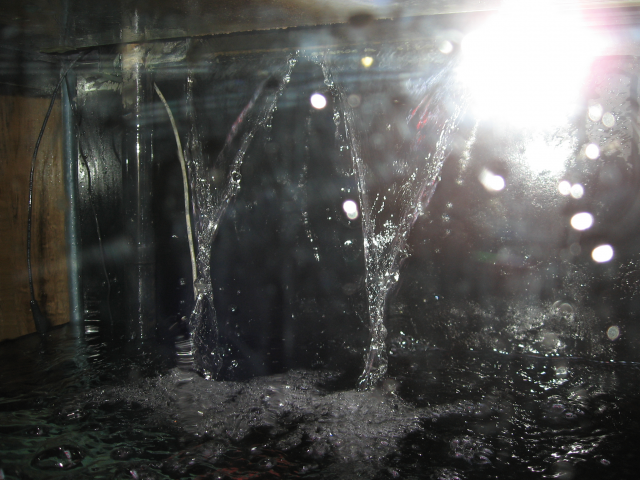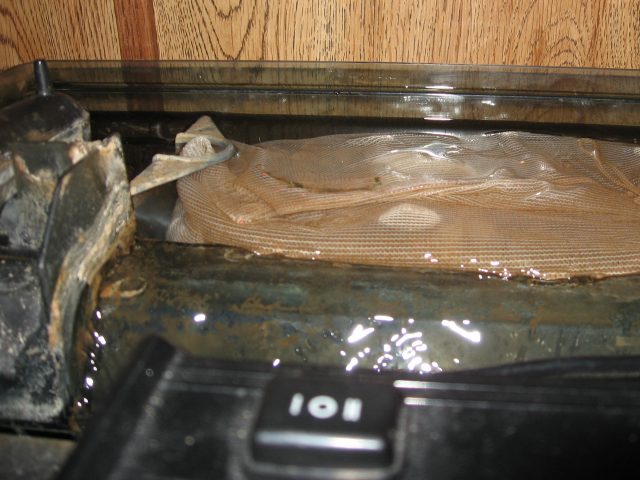tiger, you and I have had this conversation. lol
My impellers don't get gunked up, I use probiotics to keep the solid build up of gunk to a minimum, I also over-filter & under stock (compared to most) hence no reason to mess with O-rings, impellers, or anything else internally. Last year we had more/longer power outages than the previous 30+ years combined on the same street, and all 8 of my AC 500's started back up after an extended period of being off due to power loss. (several hours)
BTW - none of my tanks are level, they all lean to one side, or the other. (left to right or right to left)
What happens to some folks, is they don't level the AC filter properly using the leveling tab, which if leaning backwards, away from the tank, can cause water overflow to the floor - but again this generally happens when the media has gotten too dirty. This is not a design flaw or weakness, it's a classic case of operator error.
I'm not saying that an o-ring can't fail, of course they can, but they shouldn't fail, if one takes certain precautions. 1 - always moisten the o-ring with water before putting the motor back on. When in doubt, replace the o-ring if it shows any wear. AC o-rings are cheap. 2. Don't use lubricants such as petroleum jelly or even silicone, unless specified by the manufacturer to do so. Some lubricants can and will damage o-rings and cause them to wear and potentially fail prematurely.
Keep in mind that some o-rings are designed to only last a few years, some are designed to last a lifetime. It all depends on the material used to make the o-ring. The o-rings in Sharkbite plumbing connectors are a prime example. They can fail too, due to operator error. (cut on pipe not straight, pipe out of round, burr on the pipe that scars the o-ring, etc) but when used properly they can last 25+ years.
I'm guessing that AC o-rings are made to last a lifetime of service, if one takes care.
https://www.oringsusa.com/html/shelf_life.html
My impellers don't get gunked up, I use probiotics to keep the solid build up of gunk to a minimum, I also over-filter & under stock (compared to most) hence no reason to mess with O-rings, impellers, or anything else internally. Last year we had more/longer power outages than the previous 30+ years combined on the same street, and all 8 of my AC 500's started back up after an extended period of being off due to power loss. (several hours)
BTW - none of my tanks are level, they all lean to one side, or the other. (left to right or right to left)
What happens to some folks, is they don't level the AC filter properly using the leveling tab, which if leaning backwards, away from the tank, can cause water overflow to the floor - but again this generally happens when the media has gotten too dirty. This is not a design flaw or weakness, it's a classic case of operator error.
I'm not saying that an o-ring can't fail, of course they can, but they shouldn't fail, if one takes certain precautions. 1 - always moisten the o-ring with water before putting the motor back on. When in doubt, replace the o-ring if it shows any wear. AC o-rings are cheap. 2. Don't use lubricants such as petroleum jelly or even silicone, unless specified by the manufacturer to do so. Some lubricants can and will damage o-rings and cause them to wear and potentially fail prematurely.
Keep in mind that some o-rings are designed to only last a few years, some are designed to last a lifetime. It all depends on the material used to make the o-ring. The o-rings in Sharkbite plumbing connectors are a prime example. They can fail too, due to operator error. (cut on pipe not straight, pipe out of round, burr on the pipe that scars the o-ring, etc) but when used properly they can last 25+ years.
I'm guessing that AC o-rings are made to last a lifetime of service, if one takes care.
https://www.oringsusa.com/html/shelf_life.html




